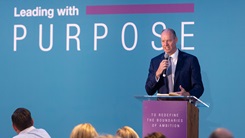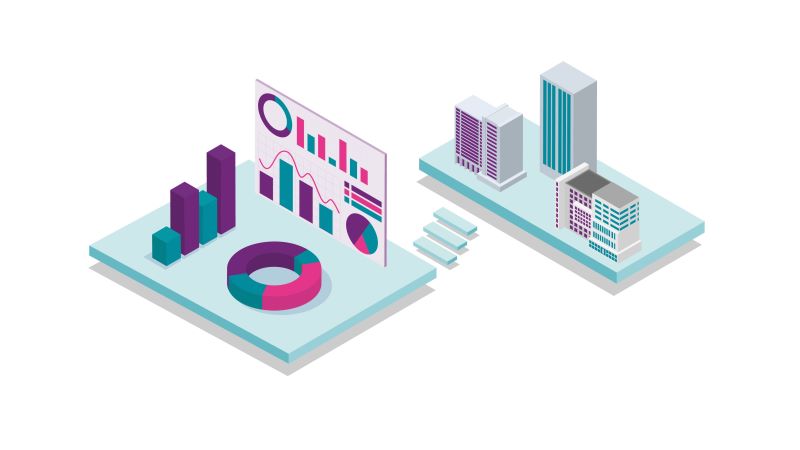How can data shape the workplace of tomorrow?
How do you know if you’re making the right decisions about your corporate real estate? The answer, simply put, is data.
Data is leading the decision-making processes faced by businesses every day - from workspace utilisation to occupancy and asset management. While on the surface, workplace design and employee experience has played a huge role in the success of the workplace, it is data that will shape the future of its purpose.
But datasets alone won’t change the face of the workplace – to be meaningful, data must be combined from across multiple building systems to create a big picture view of portfolio performance. That’s where integrated reporting comes in.
Nick Garniss, Centre for Excellence Director, explores the concept and how it will influence the workplace of tomorrow.
Transforming the process
We’ve witnessed a transformation of the industry during the last five years, with facilities management evolving towards workplace experience management and employees adopting a more flexible, hybrid approach.
Many businesses are still relying on guesswork and assumptions to shape their workplace strategy, often creating excess expense as different solutions are trialled, and inconclusive results received.
In February 2022, the Royal Institute of Chartered Surveyors (RICS) launched the International Building Operation Standard (IBOS) - a framework designed to improve building use, but more importantly, one that puts people at the centre of workplace decision making.
The framework’s approach to supporting organisations is the first of its kind on this type of global scale and provides a clear definition of the data that businesses should capture to enable consistent building operation and performance.
With a clearer view of the data that is needed, businesses now need a method to report and present it in a way that delivers actionable insights for building teams. That’s where visual insights using integrated datasets enables both a world view and a granular lens on the data.
Dashboard reporting can provide that big picture view and incorporates every aspect of the workplace, from services and service performance, to cost and risk. With the right skills and understanding, the data identified in the IBOS framework can be translated into actionable intelligence for businesses to shape strategies and support optimisation.
Using the data for good
Corporate real estate leaders are increasingly asking questions about their workplace design, occupancy and space utilisation – ‘Do I have enough desks?’, ‘Are all my meeting rooms being used consistently?’ - not to mention the pressure of meeting sustainability ambitions ahead of 2030 targets.
And data can be used to measure performance against the three key areas of workplace strategy: employee experience, sustainability, and optimisation. But with more businesses capturing data across a spectrum of platforms, capturing consistent, real-time intelligence in a single dashboard is key to tracking trends, identifying opportunities for cost savings and optimising portfolios.
By using an integrated reporting platform, businesses can remove that creeping doubt, by displaying a real-time, picture of portfolio utilisation and performance, providing the necessary insights to make informed decisions.
Putting people at the heart of decision making
As more businesses look to encourage colleagues back into the workplace as well as attract new talent, understanding their needs alongside workplace performance will ensure a harmonious environment for all.
And while employee surveys provide a great look into the wellbeing and experience of employees in their workplace, it is integrated dashboards of building data that will provide a full picture of their behaviours, and a clearer insight into how the space is really used.
On top of this, holding data on the office environment, like air quality and CO2 levels, will enable workplace teams to adapt their approach to the continuous comfort and safety of employees and, in turn, create a setting that supports productivity.
Our management reporting suite, Prism, is one such solution. Prism collates and displays key operational data, KPIs and maintenance tasks, energy data, occupancy and a host of other systems giving an ‘at-a-glance’ breakdown of performance. It’s the culmination of our experience and expertise in the industry, providing our clients with the data to support their strategic and operational decision making.
While data alone won’t solve every workplace challenge, an informed, holistic data-led perspective enables corporate real estate leaders to make better decisions, reduce cost, reduce risk and create workplaces employees are keen to return to.
With a full-picture view of the data, every single factor can be accounted for, delivering employee satisfaction, and allowing for meaningful change across the workplace.












